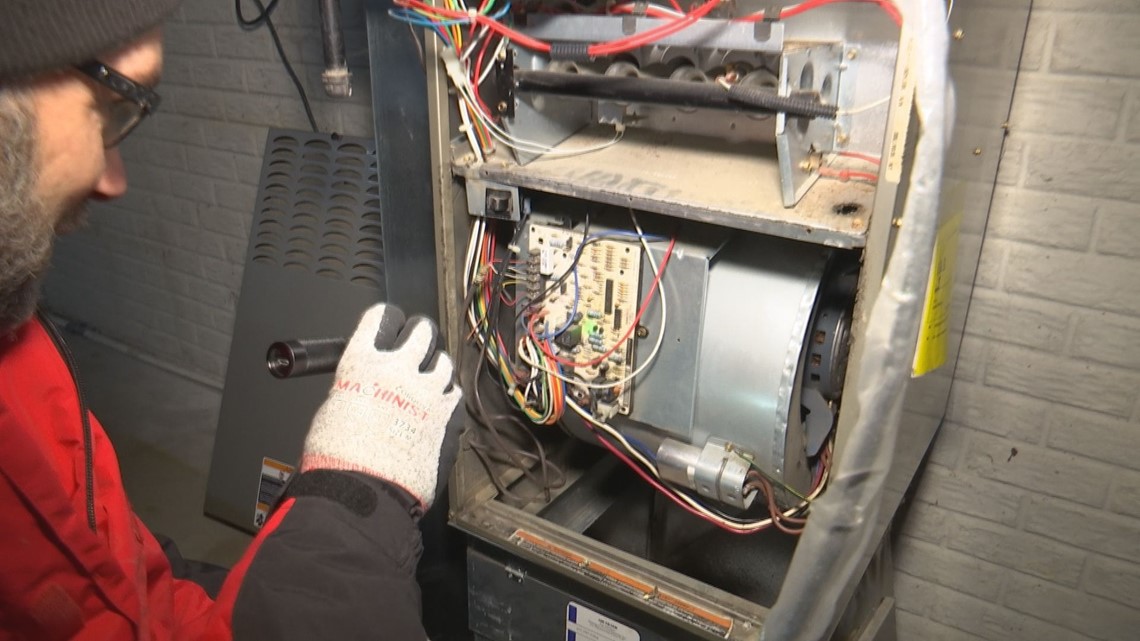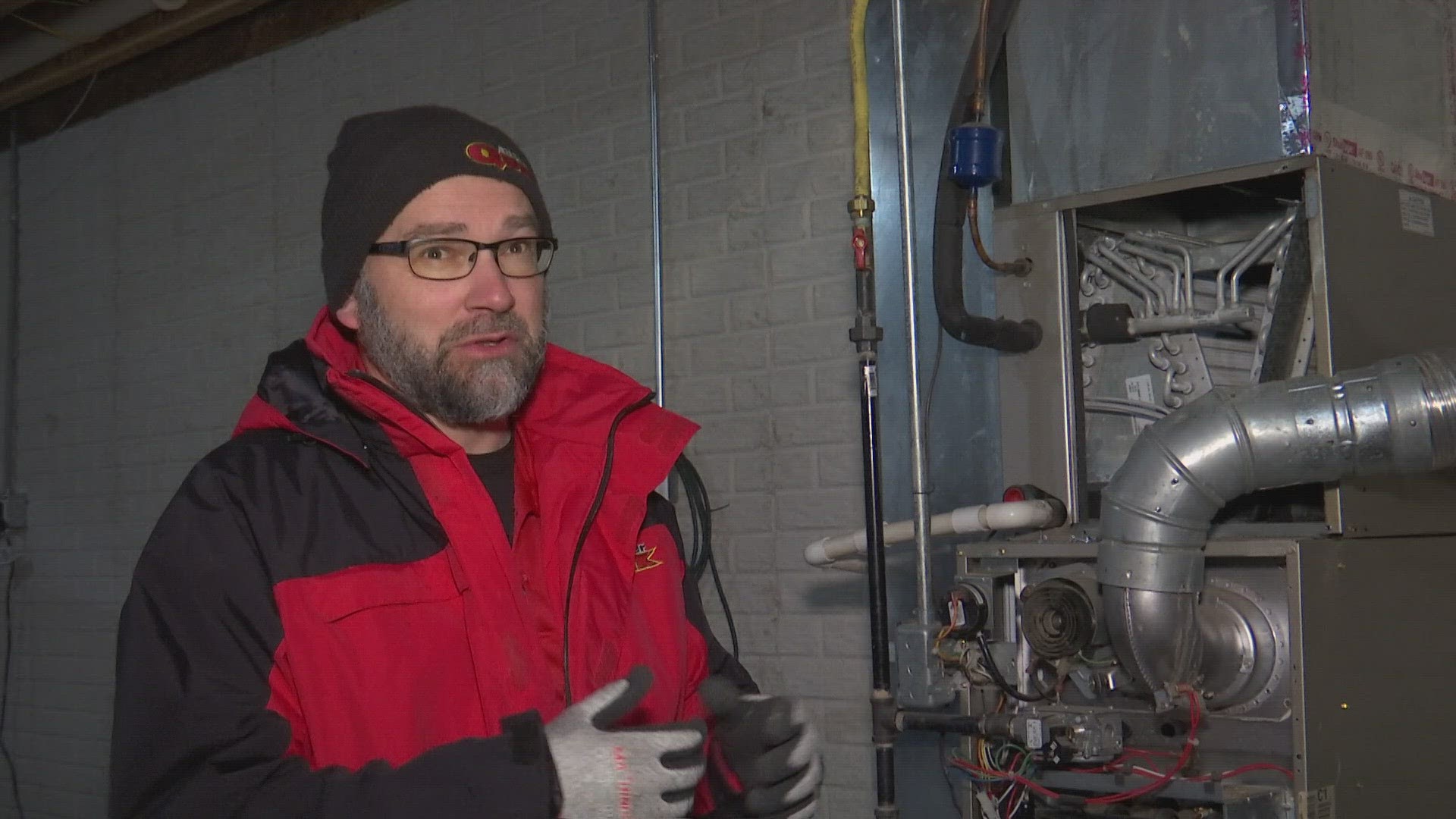INDIANAPOLIS — The extremely cold weather often leads to other problems in your house. Mister Quik expected over 500 calls on Monday for heating and plumbing issues. That’s about a 60% increase over a typical day.
13News went along for a service call on the near north side of Indianapolis at an Airbnb with a failing furnace and frozen pipes.
Mister Quik plumber Richard Smith saw a problem even before he got inside. A garden hose was connected to a spigot on the side of the house.
"Even in the summer, always unhook this,” Smith said. “Every time you unhook a hose, you always see water coming out of it. So, if you're trapping that water inside of there, it's going to freeze and burst and cost you thousands of dollars in damage and an insurance claim.”
Fortunately, there were no burst pipes inside. But Smith said it’s critical to know where the main shutoff valve is in your house in case a pipe does burst. He recommends closing that main valve anytime you are going to be away from your house for more than 48 hours.
When the temperature dips below 10 degrees, Smith said to open the cabinets below the sink and leave a drip running at any faucets on outside walls. That allows heat from the room to keep pipes from freezing.
“Anytime anything freezes, doesn't matter if it's a hose, a hose spigot, a pipe, it doesn't matter what it is — out by your softener, your water heater — that pipe is going to expand probably two or three times the size, and that's when you're going to get that split, and that's when the water is just going to gush everywhere,” Smith said.
The thermostat in the house was set at 72 degrees. But the temperature inside was only 54 as Mister Quik heating and cooling technician Alex Kolb went to the basement to diagnose the furnace problem.


Experts say one of the most important things you can do is routine maintenance on your heating and cooling system. Spring and fall checkups might just avoid a bigger problem when it does get really cold.
"Number one foremost: filters,” Kolb said. “I go to some houses they don't even know they have a filter in the system at all. They should be changed on average every month. A four-inch-thick filter, the average is probably every six months. But dirt and air filtration are key to killing these systems and making them go down."
The filter was not the problem here. The heat exchanger is cracked, visible on the snake camera inspection.
"You can see all this scorched metal,” said Kolb, looking at the video screen. “This is a jagged cracked line right through here, and it leads all the way to that rivet. So, this is a potential CO2 issue. The American Gas Association says do not run the furnace in that condition.”
Kolb also found a failing switch that is likely to blame for the failing heat and may have caused the crack from overheating the heat exchanger on a 14-year-old furnace that will likely have to be replaced.

